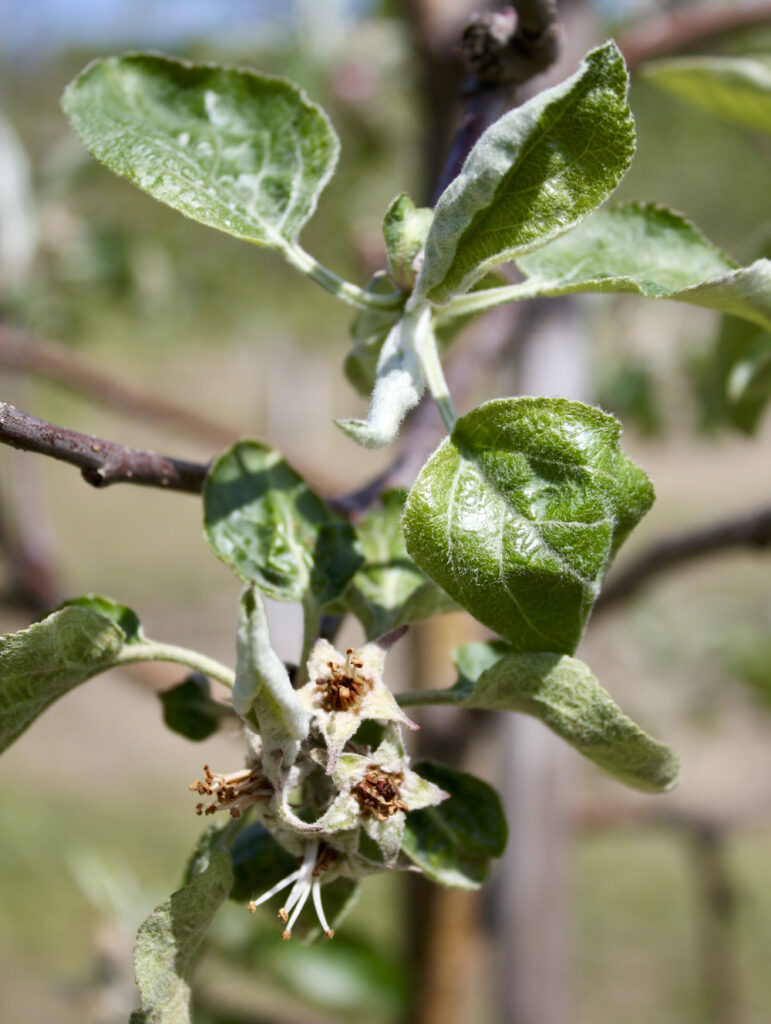Sustainable frost protection innovation wins award

An innovation by a B.C.-based startup that could naturally prevent frost damage to fruit crops has been named a winner in the Green Pursuit national pitch competition.
Read Also

Opinion: Mindset is a tool that we can leverage
I love talking about the generational differences within the agriculture and food sector. I had some eye-opening conversations when I…
Advanced AgriScience was the runner-up in the recent national sustainability and innovation challenge powered by Dairy Farmers of Canada and Bioenterprise, Canada’s Food & Agri-Tech Engine.
Why it matters: As climate extremes become more prevalent, the risk of frost damage to fruit crops rises, affecting food security and grower profitability.
Advanced AgriScience founder Collin Juurakko believes his innovation could be the solution the industry needs. He has developed what he says is the world’s first frost protection tool for plants made of naturally occurring micro-organisms and protective proteins.
The product is a dry powder that’s mixed with water and spray-applied to prevent frost formation on plants, resulting in an up to 95 per cent cost savings per acre without emitting greenhouse gasses or using large quantities of water, says Juurakko.
“Current protection is expensive, ineffective and unsustainable. Ideally, I want to see a cheaper, better frost protection so growers can eliminate all the existing systems or use them in tandem with what we’re developing so they don’t need absurd amounts of water and can be more sustainable,” he says, adding the innovation stems from his graduate studies at Queen’s University in Kingston into how frost forms.
“Frost is caused by one bacterium and as we studied it, we found a protective protein that plants can use to interact with water molecules to prevent ice crystals from forming and growing,” he explains.
“Wind machines and irrigation focus on warming the plant but don’t address the molecular cause of frost.”
Following his graduation, Juurakko moved to British Columbia and is now working to translate his research into a cost-effective technology for growers.
The frost problem is a global one, affecting grape vines in France, coffee in Brazil and wheat in Australia, to name just a few. Growers now use a variety of tools to mitigate risk, from sprinklers and frost fans to heaters, wood fires and even helicopters to keep frost from forming on their young crops.
“Risk of frost happens every year, in different parts of the province and to varying degrees,” says Kelly Ciceran, general manager of the Ontario Apple Growers.
According to Agricorp statistics, frost/freeze damage is the biggest claim category in the Ontario apple crop insurance plan every year. The most devastating event in Ontario in recent years happened in 2012, when an early spring frost wiped out 85 per cent of the province’s apple crop, as well as significant acres of peaches, cherries and plums.
Another province-wide frost event in 2015 led to a 40 per cent loss in Ontario’s apple crop; 2021 and 2023 also saw frost damage.
Although his lab work has been successful, real-life trial data is the next step on Juurakko’s journey to commercialization. He is seeking regulatory approvals to move ahead with grower field trials, which he hopes to have in place by spring 2025. Although he plans to focus on high value Canadian horticultural crops, he believes his technology could also work on field crops.
“This is a microbial bioproduct, a seed treatment you spray on crops to colonize them and protect against frost,” he says.
“Ultimately, we want to provide a low cost, sustainable and effective solution that will help growers decarbonize and protect agriculture from the effects of climate change.”
Juurakko’s Green Pursuit win netted him $5,000 in prize money, as well as membership in Bioenterprise, which gives him access to that organization’s national innovation network.
Bioenterprise staff and advisors have already been helping him make horticulture sector connections and learn more about what growers need to address frost challenges, how his innovation could fit into existing farm operations and in what format.
The Green Pursuit was a $50,000 national business pitch competition for early-stage Canadian companies focused on sustainability in agriculture, food, and beverage production innovation. The challenge was won by Aruna Revolution of Nova Scotia for turning agricultural and food waste into compostable fibres.
Source: Farmtario.com

